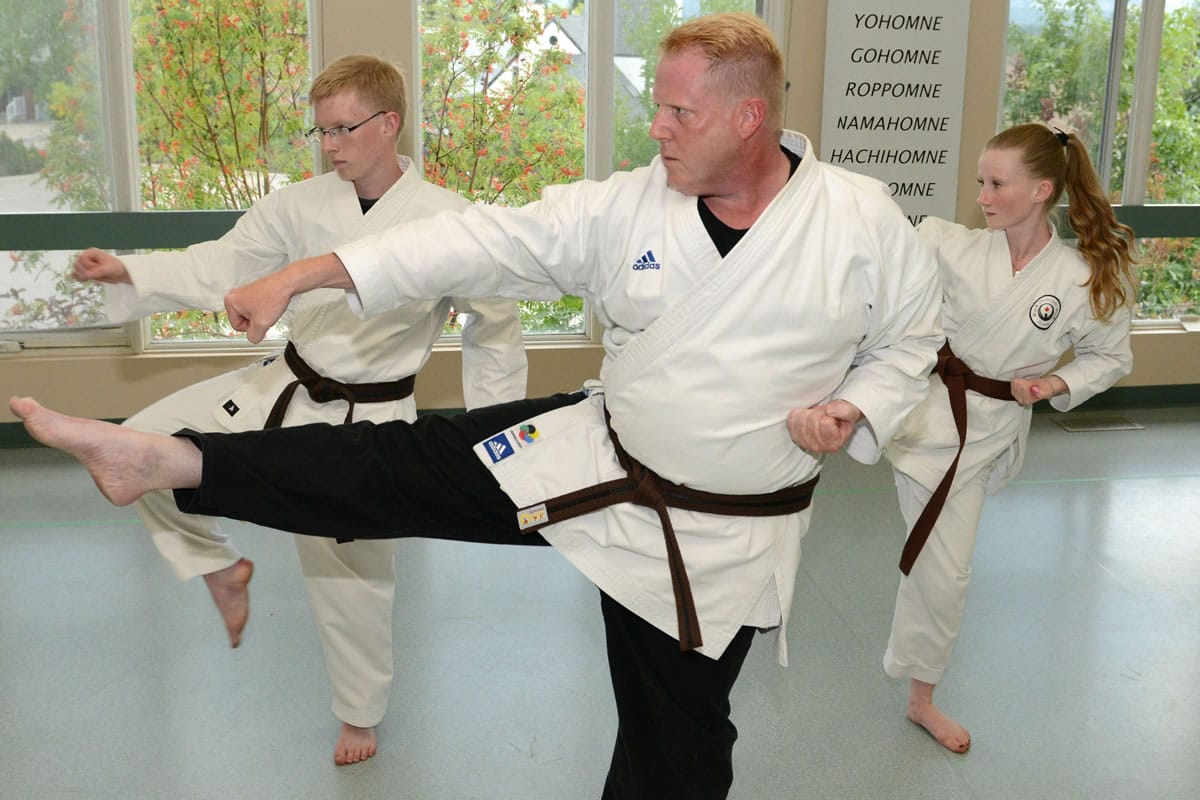CHICAGO — I pity the foolish mugger who attempts to rob David Jones’ family with anything less than a grenade launcher.
Jones is a seventh-degree black belt in Shotokan karate. So is his wife. Both of their daughters are black belts as well, and they compete internationally. For the Joneses, karate is a family affair.
And there are good reasons why you should wish to keep up with these Joneses, as karate is an excellent form of exercise that trains both body and mind. At the same time, its practical nature allows parents to punch through their lame justifications like “I don’t have time to exercise.”
I’ve read numerous surveys of the reasons people provide for not exercising, and “I don’t have time” always takes the No. 1 spot. Karate chops that excuse in two, because it’s something that can be done as a family.
Parents often complain they want to spend more time with their children. At the same time, I hear them complain about having to regularly engage in taxi duty to take said children to their various lessons and games. You’re probably not allowed to join your kids’ Pee Wee football or field hockey team. Instead, you’re in the stands watching practice, and possibly consuming some unhealthy junk food.
But karate, a millennia-old martial art, is increasingly catering to families so you can all exercise together. Beyond the time-management aspect, it gives you that quality time you’ve been seeking.
“The demographics have changed,” said Jones, who has been a karate instructor for 35 years. “What used to be a young, male-oriented activity is now far more inclusive. I have so many families training with me. Usually it’s the children who’ve started first, and they loved it, and then the parents get involved.” And sometimes, even grandparents.
“We had always planned for our kids doing a sport of some sort,” said 46-year-old Craig Fallis. “We tried soccer and baseball, and there wasn’t much interest there, so we tried karate and it stuck.” Fallis, a project manager who has been practicing karate for almost seven years, joined his dojo just a few months after he put his son in it (and his daughter joined not long after). He said having an organized, scheduled regimen was a powerful motivator for him. “It gives you a personal commitment to go; there are no excuses.” Fallis is just one level away from achieving his black belt.
“It’s been great for bringing our family together,” he told me. “We’ve definitely bonded over karate and working on goals together, like preparing for tournaments and belt gradings.”
Beyond that, Fallis said that the increase in core strength has done wonders for his back problems, and he’s noticed rapidly improved hand-eye coordination.
Jones explained that you can have a class with a wide range of individuals who all work at their own pace and gain a variety of benefits from it. And the benefits go beyond what you may realize.
“It’s certainly going to make you stronger,” Jones told me. “It is good for flexibility and range of motion, as well as great for balance. It’s all very functional movement. You’re able to use your body in a much more efficient manner, and you develop great core strength.”
To learn more about the benefits of karate for people of all ages, I went right to the top, interviewing the chairman and chief instructor for the International Shotokan Karate Federation, Master Teruyuki Okazaki, who is 10th-degree black belt and lives in Philadelphia.
“Karate is good for everyone to practice, regardless of age and/or gender,” he told me. He explained that karate is a way of life in Japan, and that his training of students in the U.S. emphasizes that karate is more than just a hobby. “We do not teach just the physical punching and kicking techniques,” Okazaki said. “We also teach much of the Japanese culture. This helps to teach the young people self-discipline and respect — after a person practices for a long time they realize that what began as sport has evolved into not only a physical training, but more importantly a philosophical journey. It is that journey that sustains karate practitioners to train for their entire lives. We have members in their 80s and we even have a member 90 years of age.”
Karate does have a lot of staying power, and working toward a higher belt level is only part of the motivation. “One motivation is because of the people you’re practicing with,” Jones said. “My whole social life is geared around the people I’ve met in karate.”



